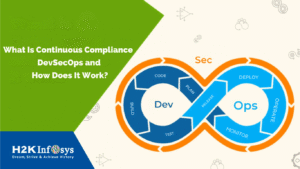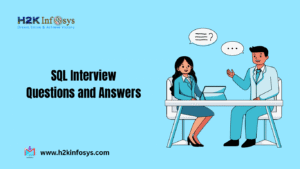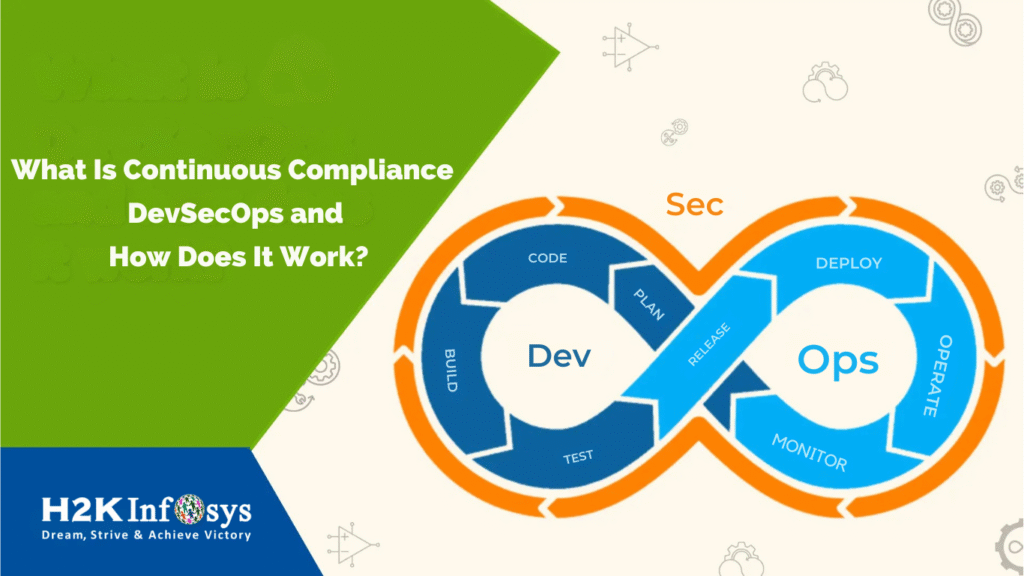Introduction
Salesforce has become the most trusted CRM platform for companies in every industry. Organizations use Salesforce to manage sales, service, marketing, automation, and analytics. As demand grows, companies need professionals who can solve real business problems using Salesforce. This is why they ask detailed Salesforce Interview Questions during job interviews.
However, many candidates only prepare theoretical questions. Employers want more. They want to see how well you understand business processes, automation, Apex logic, and real project challenges. This blog gives you a large list of Salesforce Interview Questions asked by top companies like Accenture, Deloitte, Capgemini, Wipro, Infosys, IBM, Cognizant, and Tech Mahindra. You will also learn how Sfdc courses, Sfdc training, and Salesforce training classes help you answer these questions with clarity and confidence.
This guide also supports your preparation for a Salesforce Certification Course and salesforce certification programs, which require strong practical knowledge.
Why Real-World Salesforce Interview Questions Matter
Companies want to hire professionals who can perform tasks on day one. They do not want employees who only memorize features. They want problem solvers who use Salesforce in real projects.
Companies expect candidates to:
- Understand how Salesforce fits into business operations.
- Solve real scenarios using configuration and development.
- Work with flows, automation, validation, and triggers.
- Handle security, access, roles, and data model design.
- Communicate in a simple and clear way.
According to a recent industry report, 72% of Salesforce hiring managers prefer scenario-based interviews, and 64% want candidates with hands-on training such as Sfdc training or Salesforce training classes.
This is why real-world Salesforce Interview Questions help you prepare better.
Real-World Salesforce Interview Questions Asked by Top Companies
Below is a comprehensive list of questions with explanations, examples, and tips to answer.
1. Salesforce Interview Questions on Admin Fundamentals
These simple but practical questions appear in interviews at Accenture, Deloitte, Infosys, and Cognizant.
Q1: How do you structure a data model for Opportunities, Products, and Quotes?
A clear answer shows that you understand object relationships.
Explain:
- Opportunity links with Products through Opportunity Line Items.
- Quotes link to Opportunities.
- Quote Line Items link to Quote.
This is one of the foundational Salesforce Interview Questions.
Q2: What is the difference between a standard object and a custom object?
Keep your answer simple:
Standard objects come with Salesforce.
Custom objects are created based on business needs.
Q3: When do you use a master-detail relationship?
Use master-detail when the child record depends fully on the parent record for ownership, security, and lifecycle.
Q4: How do you create a custom app in Salesforce?
Steps:
- Go to Setup.
- Select “App Manager.”
- Click “New Lightning App.”
- Add objects, tabs, and branding.
Employers love step-based answers like this.
Q5: How do you use validation rules to control input?
You can give a simple example:
ISPICKVAL(Stage__c, "Closed Won") && ISBLANK(Amount)
This validation forces users to enter Amount when stage is Closed Won.
2. Salesforce Interview Questions on Security and Access
Security is one of the most important topics in Salesforce interviews.
Q6: How do you control who sees what data?
Explain the following levels:
- OWD
- Roles
- Profiles
- Permission sets
- Sharing rules
This question appears in almost every round of Salesforce Interview Questions.
Q7: What is the difference between a role and a profile?
Profiles control what a user can do.
Roles control what data a user can see.
Q8: How do you secure a sensitive field like Salary?
Answer:
Use field-level security and permission sets.
Q9: How do you solve a problem where a user cannot see a record?
Explain the step-by-step flow:
- Check OWD.
- Check role hierarchy.
- Check sharing rules.
- Check profile permissions.
3. Salesforce Interview Questions on Automation Tools (Flows, Process Builder, Workflow)
Companies want Salesforce experts who know Flow Builder very well.
Q10: When do you use a before-save flow?
Use it to update fields on the same record.
It runs faster and avoids DML.
Q11: How do you avoid recursive updates in flows?
Add entry conditions so the flow runs only when the field changes.
Q12: Can you create a flow that assigns a task when an Opportunity closes?
A simple flow diagram helps:
Record Triggered Flow
|
|-- If Stage = Closed Won
|
|-- Create Task
This type of question appears in many Salesforce Interview Questions lists.
Q13: When do you use a scheduled flow?
Use it when you need to run logic at a specific time, like nightly updates.
Q14: How do you debug a flow that fails?
Use Debug Mode, emails, and system logs.
4. Salesforce Interview Questions on Apex Coding
Developer roles require strong Apex skills.
Q15: What is the difference between a trigger and a Flow?
Triggers handle advanced logic.
Flows handle admin-based automation.
Q16: Write a trigger to update a custom field every time an Account is inserted.
trigger UpdateField on Account (before insert) {
for(Account a : Trigger.new){
a.Priority__c = 'High';
}
}Q17: How do you prevent SOQL inside loops?
Use collections and maps.
Q18: What is bulkification?
It means writing code that supports bulk record operations.
This is one of the most common Salesforce Interview Questions in developer rounds.
Q19: How do you write a test class for a trigger?
Example:
@isTest
private class TestAccountTrigger {
static testMethod void testTrigger(){
Account acc = new Account(Name='Test');
insert acc;
}
}
5. Salesforce Interview Questions on Integrations
Companies integrate Salesforce with ERP, payment systems, marketing tools, and mobile apps.
Q20: What is the difference between REST API and SOAP API?
REST is lightweight.
SOAP is structured and secure.
Q21: How do you use named credentials?
Named credentials store callout details securely.
Q22: How do you call an external API from Apex?
Example:
HttpRequest req = new HttpRequest();
req.setEndpoint('callout:API_Name');
req.setMethod('GET');
Http h = new Http();
HttpResponse res = h.send(req);
6. Salesforce Interview Questions Based on Real Projects
These questions show how well you understand real jobs.
Q23: How do you migrate data from a legacy system?
Steps:
- Clean data
- Map fields
- Use Data Loader
- Load parents first
- Validate records
This appears in many Salesforce Interview Questions.
Q24: How do you manage sandbox refresh?
Explain sandbox types: Dev, Dev Pro, Partial, Full.
Q25: How do you design a scalable automation strategy?
Use one flow per object.
Avoid overlapping triggers and flows.
Document logic clearly.
7. Salesforce Interview Questions on Reporting and Dashboards
Companies want candidates who know analytics.
Q26: How do you create a dashboard for sales performance?
Use gauges, bar charts, and filters.
Q27: How do you use a row-level formula?
Row-level formulas allow calculations in the report itself.
Q28: What is a joined report?
A report that combines multiple report types.
8. More Advanced Salesforce Interview Questions Asked by Top Companies
To strengthen your preparation, here are additional questions:
Q29: How do you handle governor limits?
Use asynchronous Apex and collections.
Q30: How do you fix an automation conflict between a flow and a trigger?
Review logic, merge steps, and avoid duplicated updates.
Q31: How do you track field history changes?
Enable field history tracking on the object.
Q32: How do you manage a large Salesforce org with many users?
Use role hierarchy, permission sets, delegated administration.
Q33: What is the use of an external ID?
It helps with data migration and syncing external systems.
Q34: What is a skinny table?
It improves query performance in large data models.
How Sfdc Courses and Salesforce Training Classes Help You Master These Questions
Sfdc training and Salesforce training classes are important because they give you hands-on practice. You work on real scenarios, build flows, write triggers, design data models, and solve real issues.
These programs teach you to:
- Answer Salesforce Interview Questions with confidence.
- Build real projects step by step.
- Work with automation tools.
- Prepare for a salesforce certification course.
- Apply concepts from salesforce certification programs.
You also get mock interviews, scenario-based tasks, and one-on-one guidance.
Key Takeaways
- Companies ask real-world Salesforce Interview Questions to test your real skills.
- Scenario-based questions show how well you handle practical challenges.
- Sfdc training and Salesforce training classes prepare you for real job situations.
- A salesforce certification course and salesforce certification programs increase your chances of getting hired.
- Practice these Salesforce Interview Questions many times to gain confidence.
Conclusion
Take charge of your Salesforce career today.
Join H2KInfosys to gain hands-on skills and prepare for real Salesforce Interview Questions with expert guidance.


























